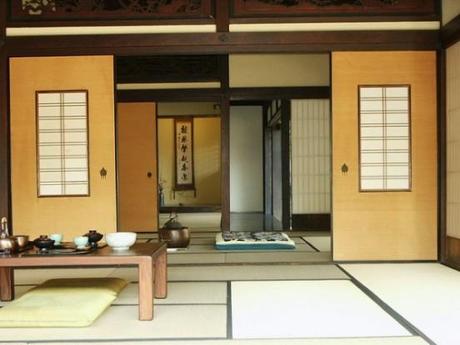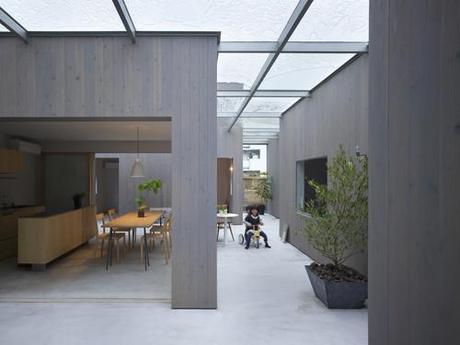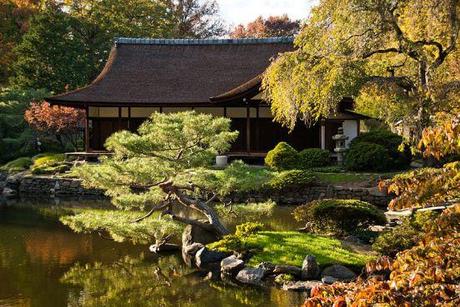In our previous World Tour of Design, we visited the romantic and varied design aesthetic of France. This week we travel a little farther East to the Land of the Rising Sun: Japan.
Japanese design differs from most classic Western design in its clean, minimalist style and open spaces. While many Western homes tend to be filled with an abundance of furniture, art and accessories – in rooms separated by walls and doors, Japanese design prefers a more spacious, clean, and less adorned appearance. Furniture is kept at a minimum and in fact in the more traditional homes, most furniture is low to the floor. Low tables with floor cushions for seating makes the overall space feel more voluminous, and the entire interior feel more open and light. Large sliding doors creates a beautiful flow from one room to the next.

Japanese design also integrates nature into both materials and decor. Materials commonly used in Japanese homes include tatami straw, bamboo, rice paper, wood and rock. Fountains, plants, and plant-inspired decor also feature prominently in many Japanese interiors, and many also open up to the outdoors with the use of sliding doors – which provides a seamless transition from the interior to the exterior.

The exterior architecture of traditional Japanese homes is built with wood, straw, bark, paper, and similar materials. Stone is rarely used in exterior design. Walls do not support the structure; rather, posts and lintels carry the weight of the roof while walls are often thin and movable. The roof is the most prominent feature of the architecture, notable for its gentle curve and large size.

If you enjoy clean lines and minimalist, open spaces, bringing elements of Japanese design into your own home might suit you very well. I would love to help you design your zen-like Japanese-inspired interior! Simply contact me at Interior Makeovers Inc. by calling 310-788-0990 or emailing [email protected].
Stay Inspired!

